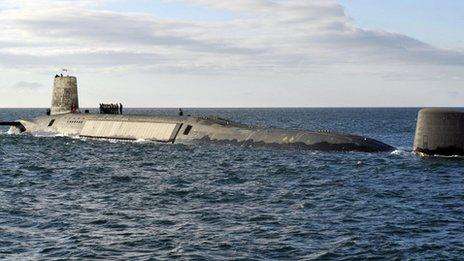Trident: MPs to vote on nuclear weapons system this month
- Published
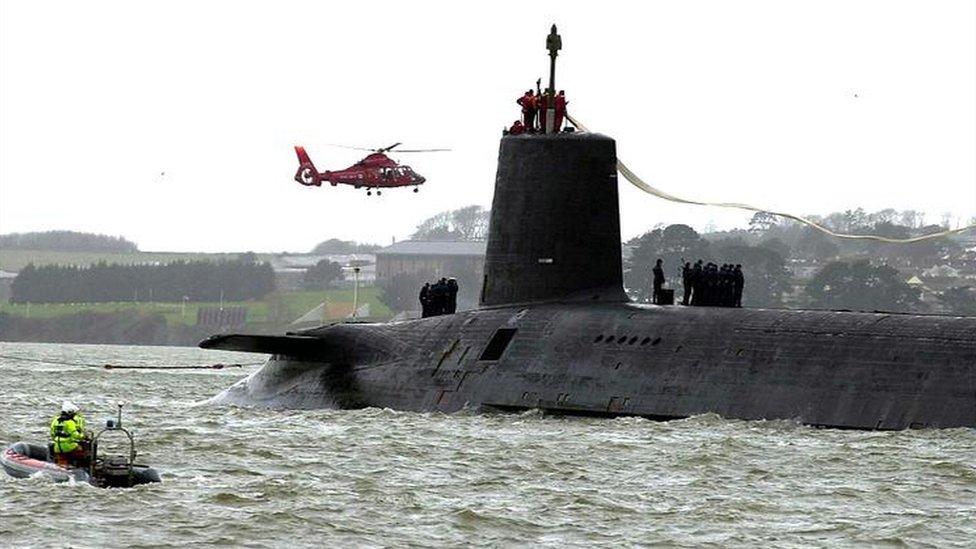
The Royal Navy's nuclear submarine - HMS Vanguard - is 150 metres long
MPs will vote on 18 July on renewing the UK's Trident nuclear weapons system, David Cameron has said.
Mr Cameron, speaking at the Nato summit in Warsaw, said he believed the vote would confirm support for replacing the full fleet of four submarines.
The PM said Trident was an "essential deterrent" to both Britain's security and the overall security of Nato.
Labour is currently considering the party's stance on Trident, which leader Jeremy Corbyn wants to scrap.
Its internal review of Labour's defence policy will keep open the possibility of retaining Trident, BBC Newsnight understands.
It is expected to suggest five tests which nuclear weapons must satisfy.
'We need certainty'
At a news conference in Warsaw, Mr Cameron, who is standing down in September, said it was not right for the Trident issue to be left to his successor.
"The nuclear deterrent remains essential, in my view, not just to Britain's security but, as our allies have acknowledged here today, to the overall security of the Nato alliance," he said.
"We need certainty about it so the investment decisions can go ahead, so I think it makes sense to hold this vote... now to put it beyond doubt."
Scottish finance secretary Derek Mackay told the BBC the SNP - which has called for Trident to be scrapped - would be "resolute" in its opposition, saying the current political uncertainty may provide a chance to vote down a renewal of the nuclear deterrent.
He said it was quite significant that there would be a vote on the issue, adding: "We would encourage others to reflect on their position... Even others who might be thinking just about value for money - are these weapons worthwhile? And encourage others in other parties to oppose trident as well."
The Trident system was acquired by the Thatcher government in the early 1980s as a replacement for the Polaris missile system, which the UK had possessed since the 1960s.
Trident came into use in the 1990s. There are three parts to it - submarines, missiles and warheads. Although each component has years of use left, they cannot last indefinitely.
The current generation of four submarines would begin to end their working lives some time in the late 2020s.
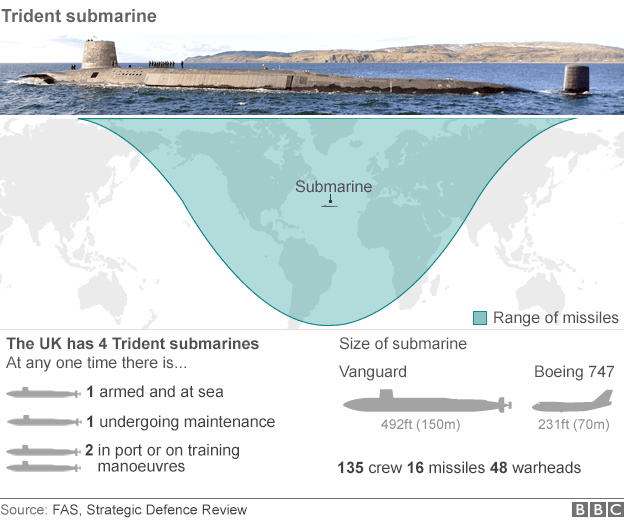
Mr Cameron's announcement came amid reports Labour had been planning to formally debate the party's stance on Trident in September.
It is understood that Mr Corbyn has accepted draft conclusions of an internal defence review, which he commissioned in January.
Newsnight understands it keeps open the option of Britain retaining a nuclear weapons system - despite the Labour leader's lifelong support for unilateral disarmament.
Mr Corbyn told Sky News: "We are having a look at all the issues surrounding it.
"I believe security in the world is achieved through peace, through democracy, through justice, through human rights.
'Demonstrable contribution'
"I do not believe that nuclear weapons actually enhance security, I support the nuclear non-proliferation treaty - which we are signed up to - which is trying to bring together collective disarmament.
"Those are the views that I will be putting forward."
Among the five tests for the UK's continued status as a nuclear power expected to be set by the review are whether it makes a "demonstrable contribution" to the defence of the country and if it represents value for money.
Under the proposals, Labour would also have to consider the impact on jobs and regional development, whether it would contribute to the party's support for multilateral disarmament, and whether the nuclear weapons system would stand the test of time in the face of new technology.
Mr Corbyn is said to believe the report could provide a middle way between unilateral disarmament and maintaining a full-scale nuclear weapons system.
- Published9 July 2016
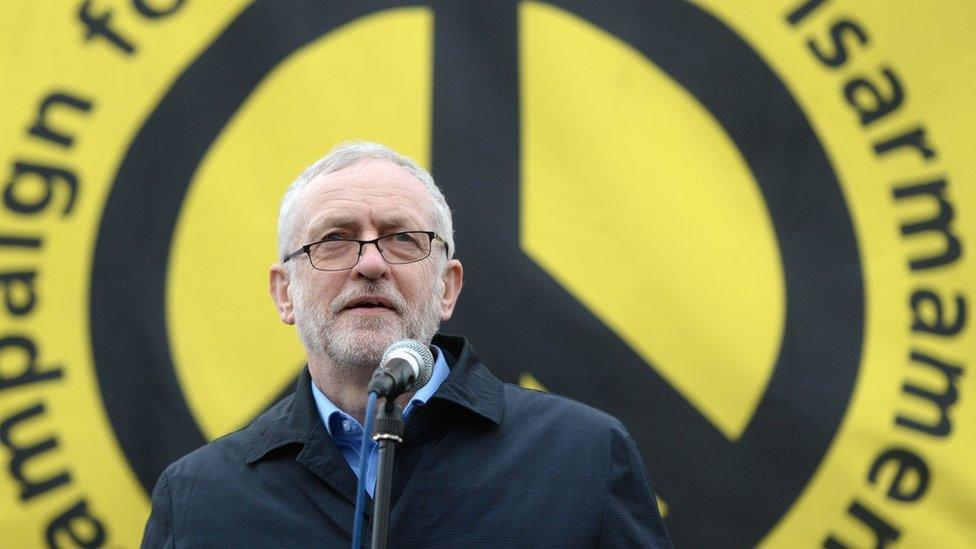
- Published27 February 2016
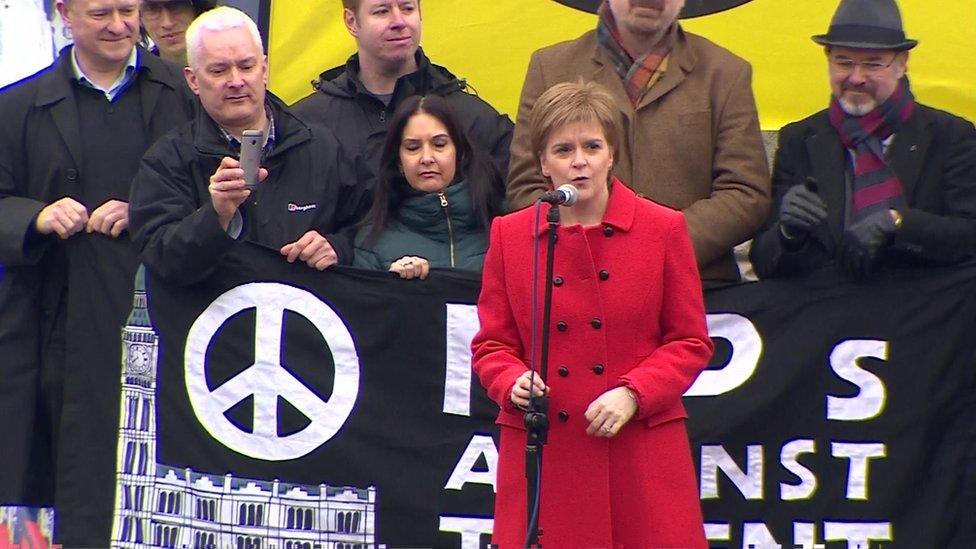
- Published13 February 2016
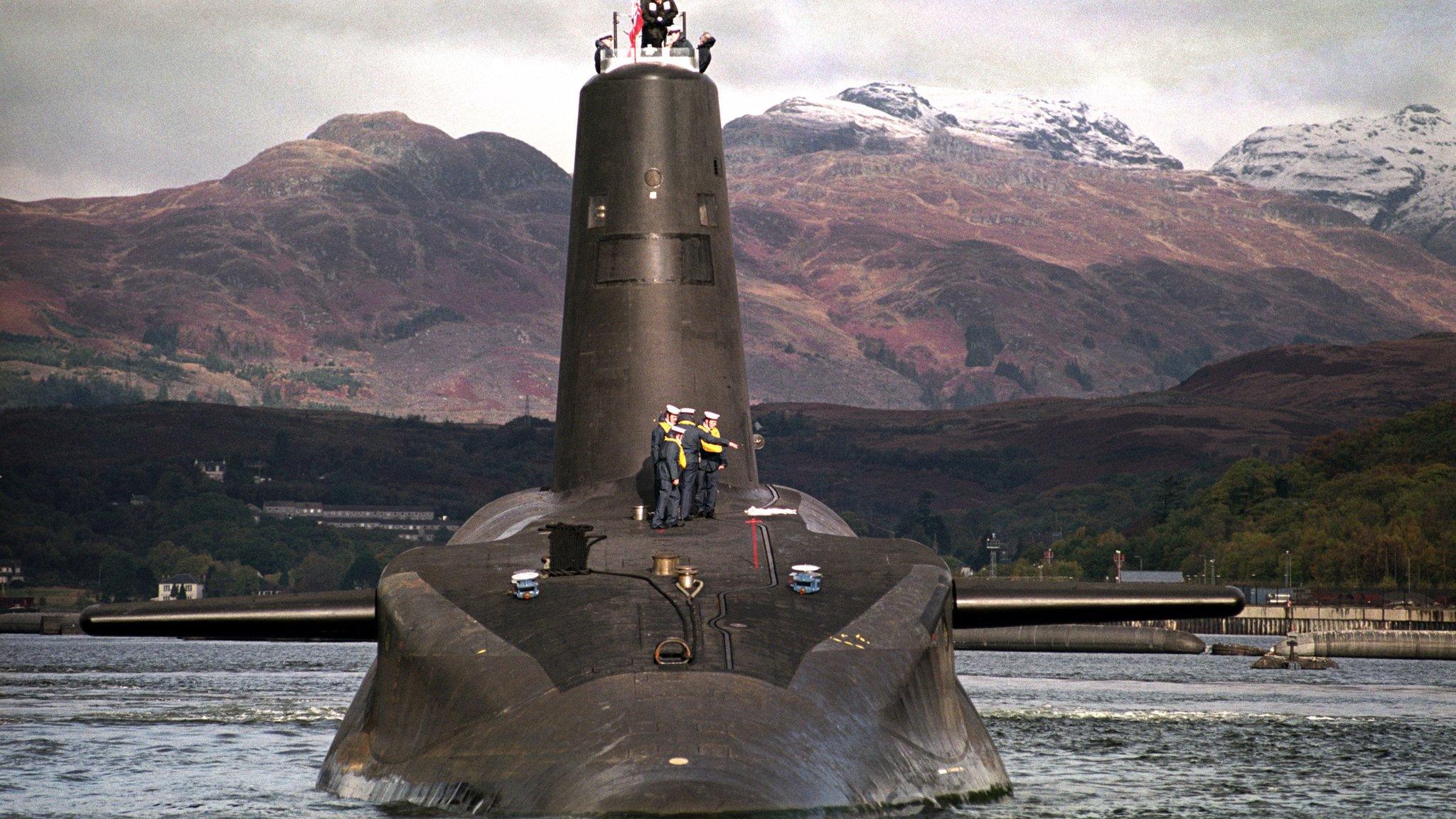
- Published23 May 2017
